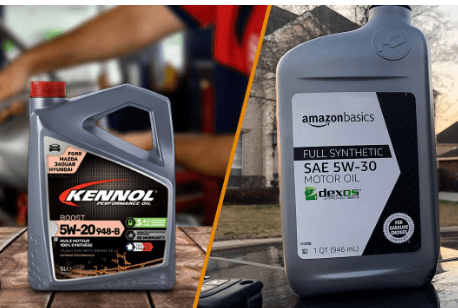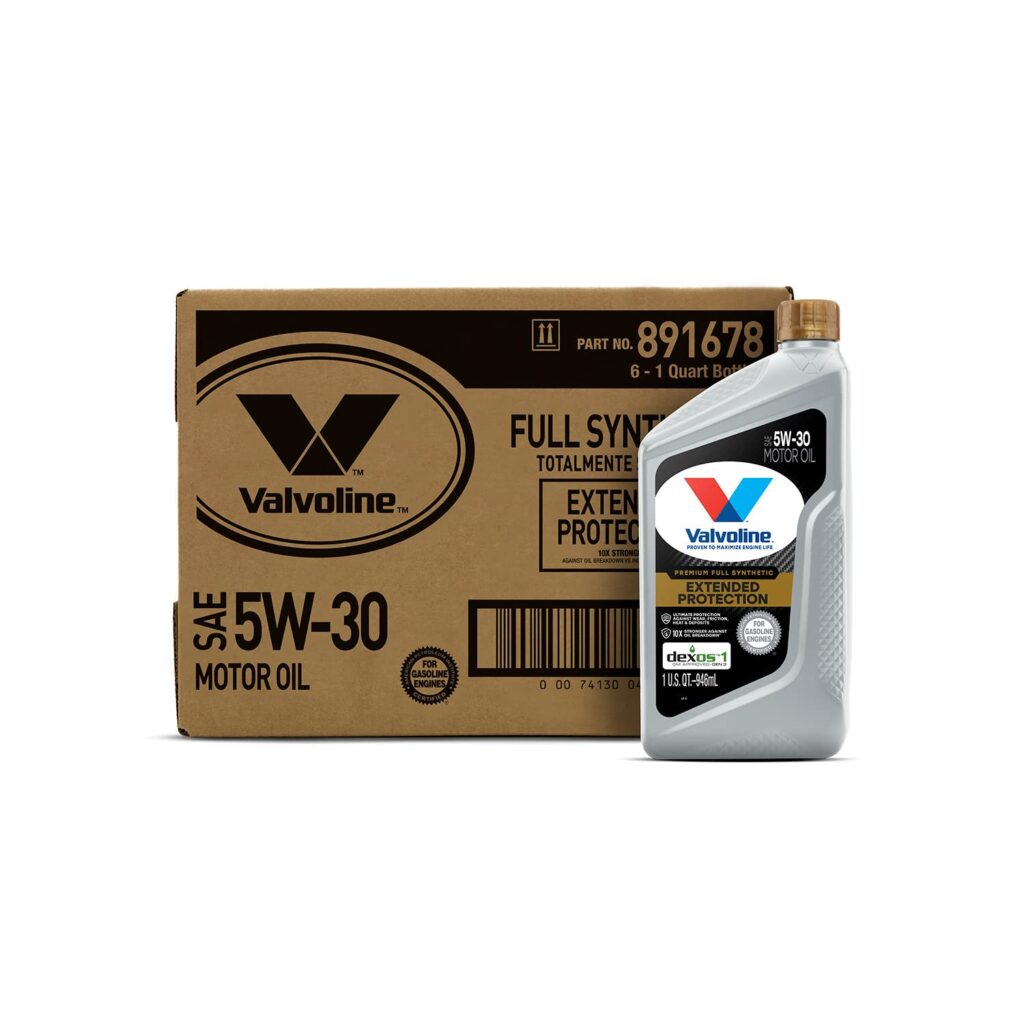Using 5W20 instead of 5W30 in a Toyota is not recommended as it could impact the longevity of the engine. While there may not be immediate effects, it is important to consider the long-term effects on your engine.
Ensuring the correct oil type and frequency of oil changes is crucial for optimal engine performance and durability.
Understanding Engine Oil Types For Toyota Vehicles
When it comes to maintaining your Toyota vehicle, using the correct engine oil is crucial for ensuring optimal performance and longevity. Different types of engine oils are designed to meet specific requirements, and using the wrong oil can have detrimental effects on your engine. In this article, we will delve into the different types of engine oils used in Toyota vehicles, the importance of using the correct oil, and the factors to consider when choosing the right oil for your Toyota.
Different Types Of Engine Oils Used In Toyota Vehicles
Toyota vehicles typically recommend engine oils with specific viscosity ratings such as 5W-20 or 5W-30. The “W” stands for winter and indicates the oil’s ability to flow in cold temperatures. The number before the “W” represents the oil’s viscosity rating at low temperatures, while the number after the hyphen represents the oil’s viscosity rating at normal operating temperatures.
While both 5W-20 and 5W-30 are commonly used in Toyota vehicles, it is important to refer to your vehicle’s owner manual or consult with a trusted mechanic to determine the recommended oil type for your specific model. Using the wrong viscosity can lead to inefficient lubrication, increased engine wear, and reduced fuel efficiency.
Importance Of Using The Correct Engine Oil
Using the correct engine oil is essential for the overall health and performance of your Toyota vehicle. Here are some key reasons why using the recommended oil type is important:
- Proper lubrication: Engine oils are responsible for lubricating various components within your engine, such as the pistons, camshaft, and bearings. Using the correct oil ensures proper lubrication, reducing friction and heat generation.
- Engine protection: The recommended oil type is formulated to provide adequate protection against wear, corrosion, and sludge buildup. Using the wrong oil can compromise engine protection and potentially lead to costly repairs.
- Optimal performance: Toyota engines are designed to operate with specific oil viscosities to achieve optimal performance. Using the correct oil ensures that your engine can function efficiently and deliver the power and fuel efficiency it was designed for.
- Warranty requirements: Using the recommended engine oil is often a requirement to maintain your vehicle’s warranty coverage. Deviating from the specified oil type can void your warranty, leaving you responsible for any potential repairs.
Factors To Consider When Choosing Engine Oil
When selecting the right engine oil for your Toyota, consider the following factors:
- Manufacturer recommendations: Always refer to your vehicle’s owner manual for the recommended oil type and viscosity. Following the manufacturer’s guidelines ensures compatibility and optimal performance.
- Driving conditions: If you frequently drive in extreme temperatures or engage in heavy-duty activities such as towing, you may need an oil with a higher viscosity to handle the additional stress.
- Oil quality: Choose engine oils from reputable brands that meet industry standards and have the necessary certifications, such as the American Petroleum Institute (API) seal. High-quality oils offer better protection and performance.
- Oil change intervals: Consider the recommended oil change intervals for your specific Toyota model. Some oils are designed to last longer between changes, while others require more frequent replacements.
By understanding the different types of engine oils used in Toyota vehicles, the importance of using the correct oil, and the key factors to consider when choosing engine oil, you can ensure that your Toyota performs optimally and remains in excellent condition for years to come.
The Difference Between 5w20 And 5w30 Engine Oil
When it comes to engine oil for your Toyota, it’s important to choose the right viscosity rating to ensure optimal performance and longevity. But what exactly is the difference between 5W20 and 5W30 engine oil? In this article, we’ll explore the variations in viscosity ratings, variations in performance and temperature range, and the compatibility of these oil types with Toyota engines.

Explanation Of Viscosity Ratings
Viscosity refers to the oil’s resistance to flow. It is measured by two numbers, separated by a “W,” where W stands for winter. The first number represents the oil’s viscosity at a lower temperature, typically in winter or cold conditions, while the second number represents the oil’s viscosity at a higher temperature, usually at operating temperatures.
In the case of 5W20 and 5W30 engine oil, the first number, 5, indicates the oil’s viscosity at colder temperatures. Both oils have similar viscosity ratings at lower temperatures, but the difference lies in their viscosity at higher temperatures.
Variations In Performance And Temperature Range
5W20 engine oil has a thinner consistency, resulting in less resistance to flow at higher temperatures. This makes it suitable for vehicles operating in colder climates or mild weather conditions. On the other hand, 5W30 engine oil has a slightly thicker consistency, providing better lubrication and protection for engines operating in hotter climates or under heavy loads.
While both oils offer adequate protection for your Toyota’s engine, using the recommended oil type for your specific model is crucial to ensure optimal performance, fuel efficiency, and longevity.
Compatibility With Toyota Engines
Toyota recommends using the specific oil viscosity mentioned in your vehicle’s owner’s manual. Each Toyota engine is designed to work best with a specific oil viscosity to minimize wear and tear, reduce friction, and maximize efficiency.
While it may be tempting to interchange 5W20 and 5W30 engine oil, doing so can potentially impact your engine’s performance and longevity. It’s important to stick to the manufacturer’s recommendations to ensure compatibility and protect your investment.
Whether it’s 5W20 or 5W30 engine oil, adhering to the recommended viscosity rating and regularly changing your oil according to your Toyota’s maintenance schedule is key to maintaining optimal engine health and performance.
Effects Of Using 5w20 Instead Of Recommended 5w30 In Toyota
Potential Impact On Engine Performance
Using 5W20 instead of the recommended 5W30 oil in your Toyota can potentially have a negative impact on the engine’s performance. While 5W20 is a lighter oil that flows more easily at low temperatures, it may not provide the necessary protection and lubrication that the engine requires, especially during high temperatures and heavy load conditions. This can result in increased wear and tear on engine components, reduced overall performance, and potentially even engine damage.
Effect On Fuel Efficiency And Mileage
Using an oil with a different viscosity, such as 5W20 instead of the recommended 5W30, can also affect your Toyota’s fuel efficiency and mileage. The recommended oil viscosity is specifically chosen to minimize friction and improve fuel economy. Using a lighter oil, like 5W20, may result in increased friction between moving parts and reduced fuel efficiency. This can lead to decreased mileage and increased fuel consumption, ultimately costing you more at the pump in the long run.
Long-term Implications On Engine Health
Opting for 5W20 instead of the recommended 5W30 for your Toyota may have long-term implications on the health of your engine. The recommended oil viscosity is carefully selected to provide optimal protection and lubrication for various engine components. Using a different oil can compromise this protection, potentially leading to increased engine wear, reduced reliability, and even premature engine failure. It’s important to prioritize the long-term health and longevity of your Toyota’s engine by using the recommended oil viscosity.
By choosing the correct oil viscosity specified by Toyota, you can ensure that your engine performs optimally, maintains fuel efficiency, and operates reliably for years to come. Don’t underestimate the importance of using the right oil for your Toyota and consult your owner’s manual or a professional mechanic if you have any doubts or concerns.
Can I Safely Use 5w20 In My Toyota Vehicle?
Many Toyota owners may wonder if they can safely use 5W20 engine oil instead of the recommended 5W30. While it may seem tempting to switch to a lighter oil for potential fuel economy benefits, it’s important to consider several factors before making the switch. In this article, we will discuss the recommendations from Toyota and industry experts, the warranty implications, and the impact of climate and driving conditions.
Recommendations From Toyota And Industry Experts
Toyota, as well as other industry experts, strongly recommend following the specific oil viscosity grade recommended for your Toyota vehicle. In the case of a 5W30 recommendation, it indicates that the engine has been designed to operate optimally with this specific viscosity. Deviating from the recommended oil may affect the engine’s performance and longevity.
Using 5W20 instead of 5W30 can lead to reduced engine protection. The thicker viscosity of 5W30 provides better lubrication and protection for the engine components, especially during high-temperature operations. Additionally, 5W30 oil is more capable of maintaining the necessary oil pressure within the engine, ensuring proper lubrication to all moving parts.
Understanding Warranty Implications
When it comes to your vehicle’s warranty, using a different oil viscosity than recommended by the manufacturer could have implications. Toyota and other automakers base their warranty coverage on the use of approved fluids and maintenance procedures. Deviating from these recommendations may result in the warranty being voided for engine-related issues.

If you use 5W20 instead of the recommended 5W30 and encounter engine problems, you may find yourself responsible for the repair costs. To avoid any warranty issues and potential financial burdens, it’s best to stick to the recommended oil grade.
Considering Climate And Driving Conditions
The choice of engine oil viscosity should also take into account your climate and driving conditions. If you reside in an area with extreme heat or cold, it is essential to choose an oil viscosity that provides sufficient protection under these conditions.
In colder climates, 5W30 is generally recommended as it maintains its thickness better in low temperatures, allowing for easier cold starts. On the other hand, if you live in a consistently hot climate or frequently engage in heavy-duty driving activities, such as towing or hauling, a 5W30 oil may be more suited to handle high temperatures and maintain its performance.
Ultimately, it is crucial to prioritize the engine’s longevity and optimal performance by following the manufacturer’s recommendations. Sticking to the recommended 5W30 oil grade will ensure that your Toyota vehicle continues to operate at its best, while also preserving your warranty coverage. Always consult your owner’s manual or a trusted mechanic for specific advice tailored to your vehicle’s needs.
Proper Maintenance Tips For Toyota Engines
Importance Of Regular Oil Changes
Regular oil changes are crucial for maintaining the optimal performance and longevity of your Toyota engine. Fresh, clean oil helps lubricate the engine components, reduce friction, and dissipate heat effectively. Without regular oil changes, the oil can become dirty and contaminated with particles, causing damage to the engine over time. Neglecting oil changes can lead to increased wear and tear on engine parts, reduced fuel efficiency, and even engine failure.
Checking And Monitoring Oil Levels
It is essential to regularly check and monitor the oil levels in your Toyota engine. Insufficient oil levels can lead to inadequate lubrication, causing excessive friction and heat. On the other hand, overfilled oil levels can be just as harmful, as it can lead to foaming and reduced oil flow. To check the oil levels, park your vehicle on level ground, wait for the engine to cool down, and then locate the oil dipstick. Pull it out, wipe it clean, reinsert it, and then pull it out again to get an accurate reading. The oil level should ideally be between the minimum and maximum markers on the dipstick.
Consultation With A Professional Mechanic
When it comes to determining the appropriate oil type and grade for your Toyota engine, it is always best to consult with a professional mechanic. They have the expertise and knowledge to recommend the right oil viscosity and specifications that are suitable for your specific Toyota model. Additionally, a professional mechanic can also advise you on the proper oil change intervals based on factors such as your driving habits, climate conditions, and the age of your vehicle.
Regular maintenance, including timely oil changes, is an effective way to ensure the smooth and reliable performance of your Toyota engine. By following these proper maintenance tips and consulting with a professional mechanic, you can help extend the lifespan of your engine and avoid costly repairs in the long run.
Frequently Asked Questions Of Can I Use 5w20 Instead Of 5w30 Toyota
What Happens If You Use 5w20 Instead Of 5w30?
It is not recommended to use 5W20 instead of 5W30. While your engine may not be immediately affected, it can have long-term consequences on engine longevity and performance. Stick to the recommended oil type and frequency of oil changes.
Can I Use 5w-30 Instead Of 5w20 In My Toyota?
No, it is not recommended to use 5W-30 instead of 5W-20 in your Toyota. While it may not immediately affect your engine, it can potentially impact its longevity and performance. It is best to follow the manufacturer’s guidelines for optimal results.
Can You Put 5w20 In A Toyota Corolla?
It is not recommended to use 5W20 in a Toyota Corolla. While it may not immediately affect the engine, using the recommended oil type and following the recommended oil change frequency is crucial for the longevity of the engine.
Is Toyota 5w20 Oil Synthetic?
No, Toyota 5W20 oil is not synthetic. It is a conventional engine oil. It is not advisable to mix synthetic and conventional oil for optimal engine performance.
Conclusion
To ensure optimal engine performance and longevity, it is important to use the recommended oil for your Toyota. While using 5W20 instead of 5W30 may not have immediate negative effects, it can have long-term consequences. Engine oil type and proper oil changes play a vital role in maintaining the health of your engine.
It’s always best to stick with the manufacturer’s recommendations for the best results.


Leave a Reply